Know Your Marketing Tools
- Home
- Marketing Your Business
- Know Your Marketing Tools
Know Your Marketing Tools
7P's Of Marketing
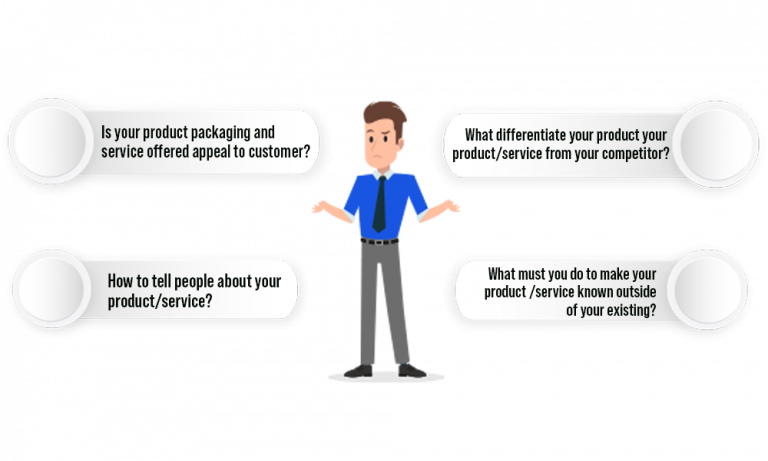
There are many ways to market your products and services. Here is the most used marketing mix that can be applied:
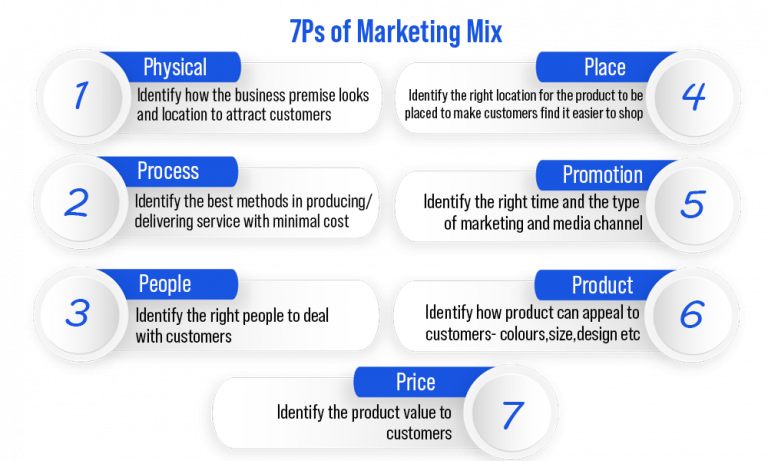
1) Price
i) Cost-Plus Pricing
Most entrepreneurs use cost-plus pricing. This method makes sure that the ‘plus’ figure not only covers all overhead but generates the percentage of profit you require. If your overhead figure is not accurate, you may face the risk of profits being too low.
The following sample calculation should help you to figure out the concept of cost-plus pricing:
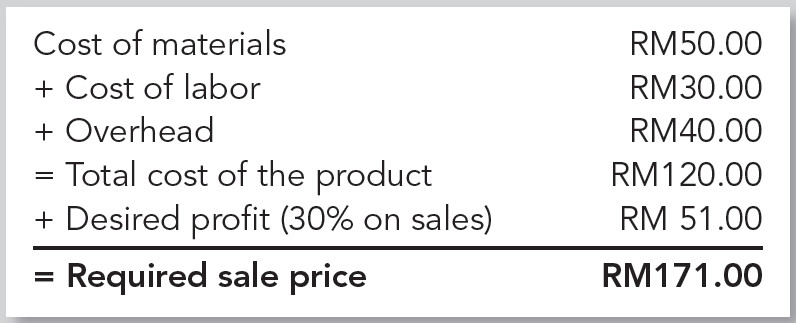
ii) Demand Price
Demand pricing is determined by the combination of volume and profit. Products are usually sold through different channels at different prices determined by demand. For example retailers, discount chains, wholesalers, or direct online marketers. A greater quantity of purchase will get a lower unit price.

iii) Competitive Pricing
Competitive pricing is used when there is already established a market price for a particular product or service. This type of pricing is normally set by the market leader which smaller company within the same market will be compelled to follow. You can only set the price a bit higher provided that you added an extra service and still be considered competitive within your market.

iv) Markup Pricing
A markup price is calculated by adding a set amount to the cost of a product, which results in the price charged to the customer. This method is widely used by manufacturers, wholesalers, and retailers.

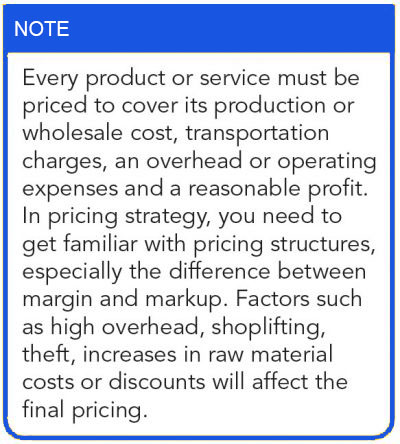
2. Product
You need to make your product and service ‘pop-up’ and attractive enough for your existing and potential customers to notice and realized its existence. You should also differentiate your product or service from your competitors through:
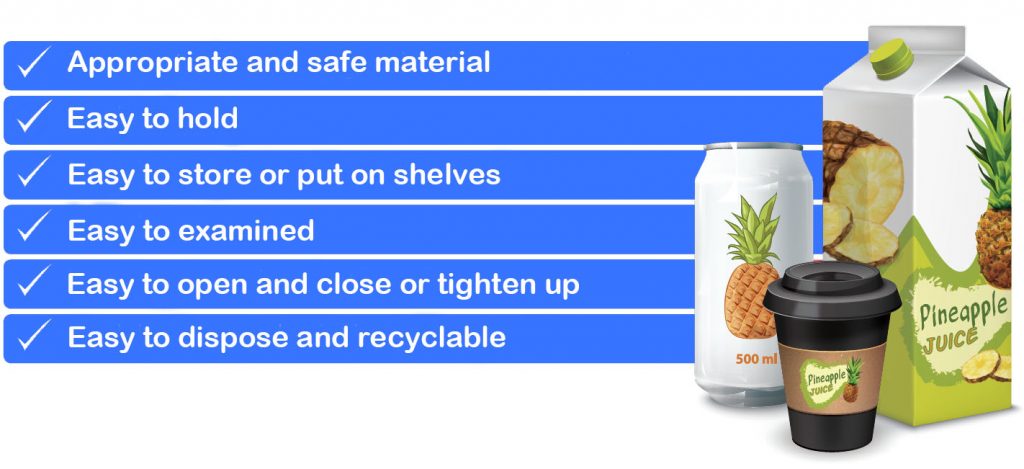
i) Packaging
Packaging is important for a product. The main purpose of a proper packaging is to protect the finished goods from damage during handling and sales distribution. A good packaging design will have a few elements such as:
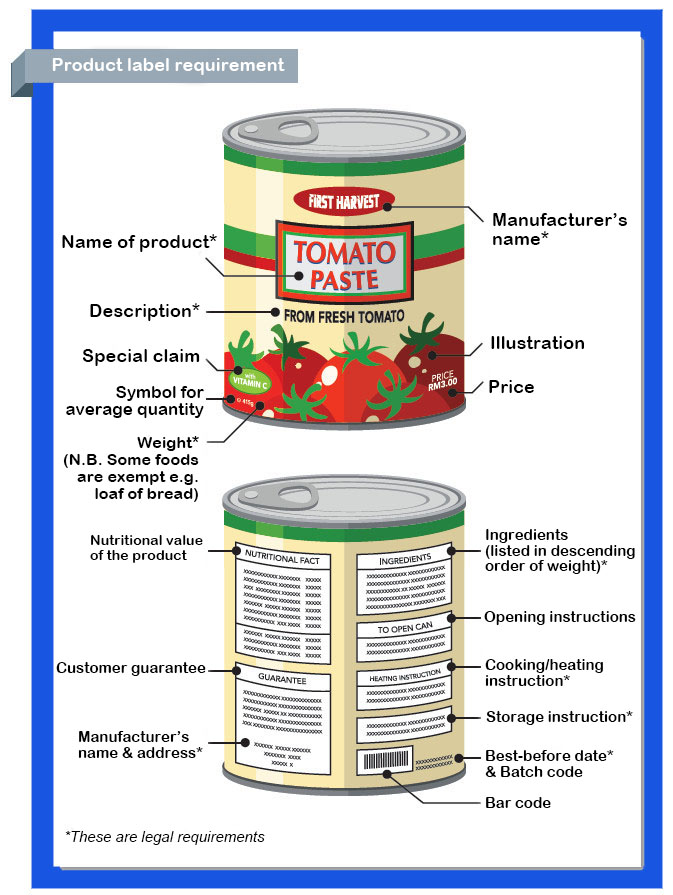
ii) Labelling
A label is a graphic design on a packaging material which gives a detailed description about the manufacturer, product name, usage, product description in written form.
As a guideline for legal requirements, the design of labeling should include:
- Product brand
- Product name
- Description
- Logo
- Color code (if any)
- Barcode (if any)
- Batch code (if any)
- Gross weight
- Nutrition value (for food or health product)
- Expiry date (for food and health product)
- Content or ingredient
- Opening, using, storage and disposal instruction
- Manufacturer and distributor’s name and address
- Halal logo or other legal agencies logo such as the Ministry of Health, Good Manufacturing Practices (GMP), Jabatan Kemajuan Islam Malaysia (JAKIM)
- Price tag
A good packaging will provide information about the product on its label, hence a good label design will attract customers to purchase it.
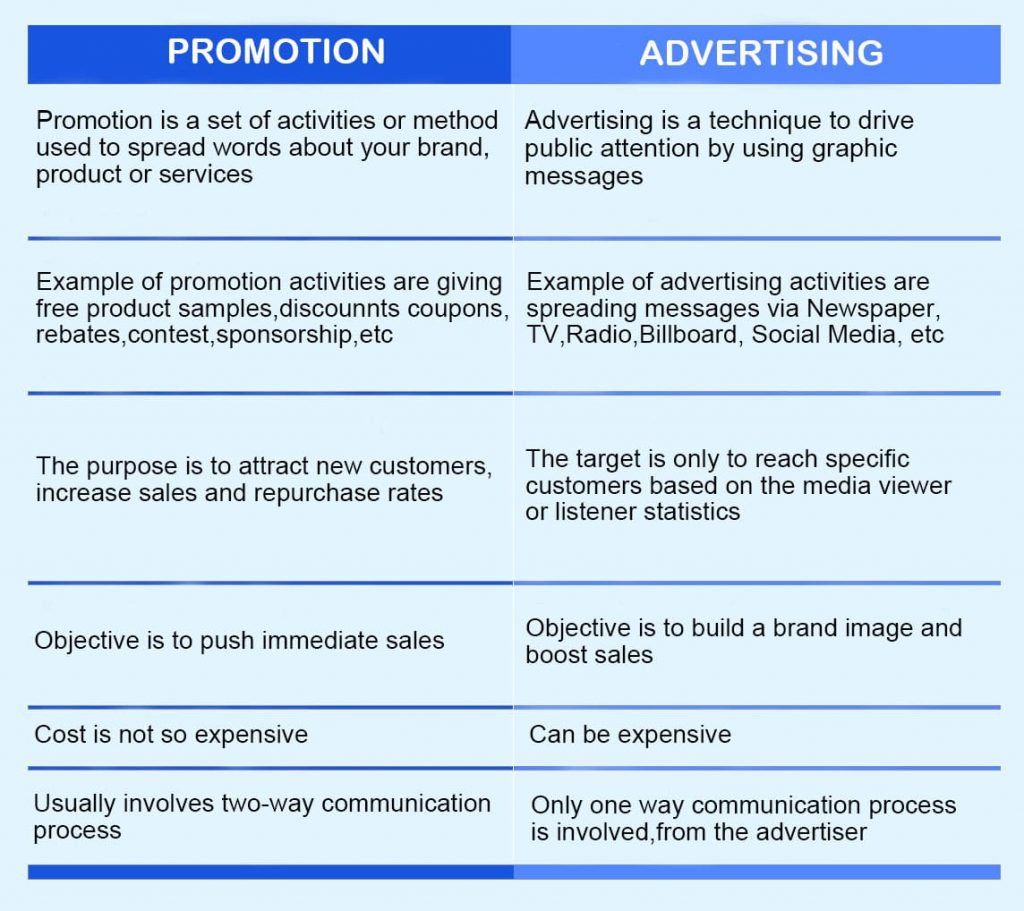
3. Promotion
Promoting your brand to the public is a big challenge. Promotion can be described as activities to raise customers’ awareness of a product or brand, generating sales and also to create brand loyalty.
While advertising is one of promotional strategy, it is a one-way communication with a purpose to inform potential customers about your products or services and how to access it.
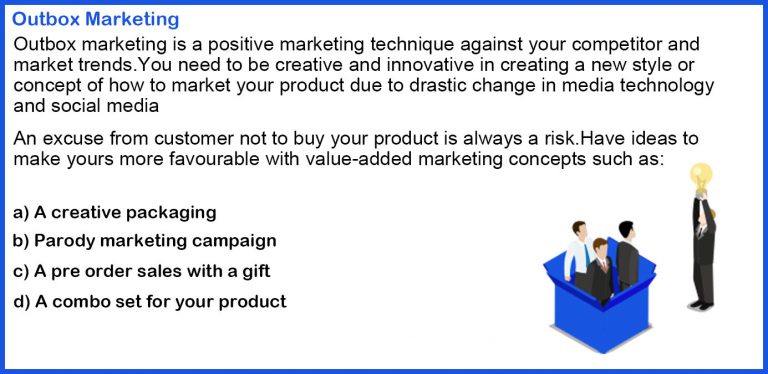
4. Place
This is a process of moving your product from you as the producer to the customer as the end-user, by identifying the location and method to sell your product or service. The method can be done directly or through a combination of intermediary distribution channel i.e. agents, distributors, wholesalers, and retailers.
Alternatively, you may use an online marketplace to sell your product or service directly to your intended customers. What’s important is to know that by using the right place, you can access bigger market, increase sales and maximise profit by ensuring that your product or service reaches the right user at the right time.
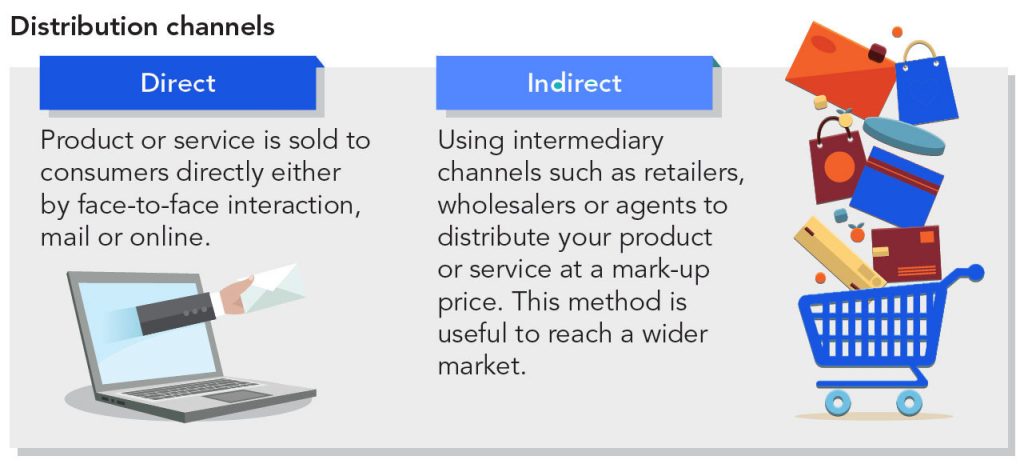
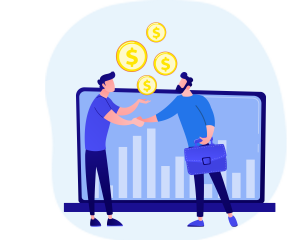
Good To Know
Price paid by customers after adding the cost price borne by the seller (including intermediary cost)
Push strategy: Producer’s effort to promote service to customers
Pull strategy: Customers seek the product or service themselves due to the product’s strong branding
Digitalising Your Business
We are now in a modern era where conventional marketing method is less suitable to reach bigger population. Technology should be fully utilized, at least your business should start applying digital marketing. Digital marketing is promotion activities of products or brands via electronic media and applications. The function is to serve as a tool for exchanging products or services information to customers. Besides that, entrepreneurs may use it as a method to build and maintain customer relationship. In terms of cost-effectiveness, digital marketing is much better than the conventional marketing in terms of reduced selling cycle, measurable, convenience and targeted results. The present and future digital marketing aim to generate sales by capturing leads from internet users. The simplest way to create your own internet or online marketing network is by creating your email that can associate with other online applications such as:
-
- Google places
- Weblogs
- Social Media
- Online Classifieds
- Special Portal
- Photo Marketing
- Location based like Foursquare
- Website
Digital Marketing Strategy
It is the action plan you need to develop by using available online marketing network as tools to stimulate consumers interest in your product or service.
Here are few digital marketing strategies you may consider to apply for your business:
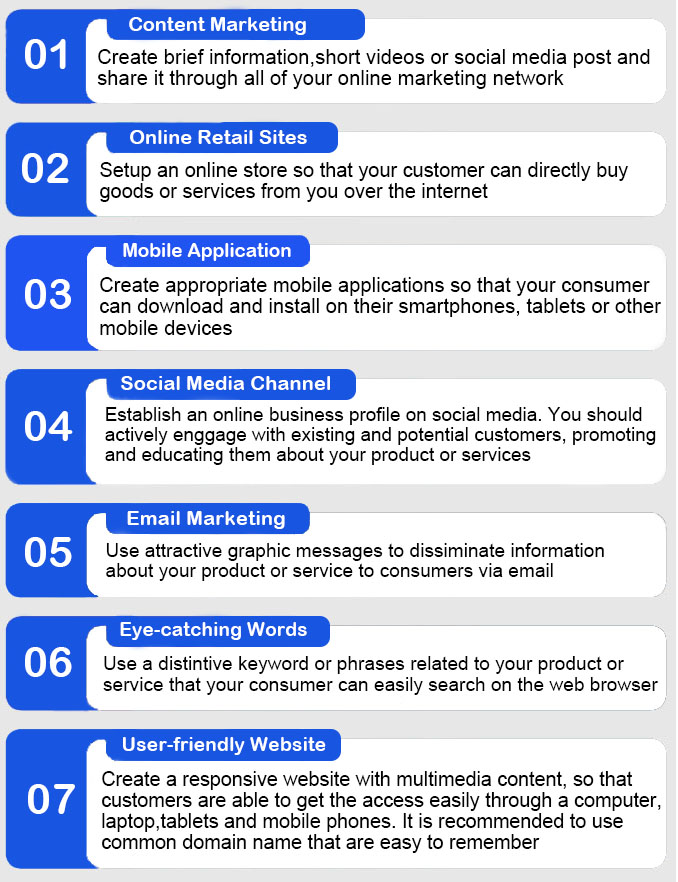
5. People
First impressions are the most lasting. In order to attract customers to buy your product or service, your employees have a vital role in creating the trust, confidence, and assurance of your product for customers to purchase. You need to employ, educate and train your staff to understand the company’s objectives and product or service that you are selling. Be it your salesperson, customer service or technical and support staff, by having informative people for the job, they will be able to market and promote your product or service better to existing or potential customers. Other important people are your customers. Once your customers have a good experience when using your product or service, they will not only repeat their orders and become your loyal customers, but also indirectly help to promote your business through word-of-mouth to their friends and relatives. The combination of good employee and customers with unforgettable experience will definitely help to expand your business and generate more profits.
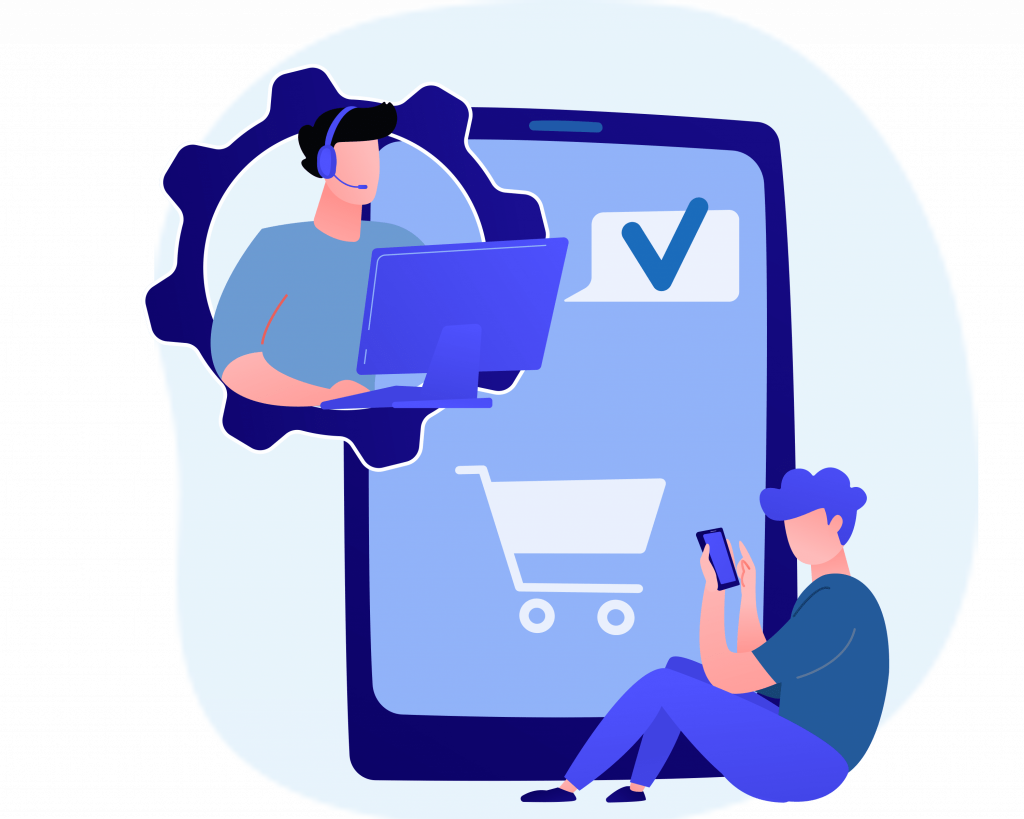
6. Process
This is an internal element of putting in place an effective system and proper processes in delivering your product and service. Processes will help you achieve the outcome required such as increase sales or productivity. The functions of the system may vary from production to handling customers’ inquiries and complaints. A good example is by having a Standard Operating Procedures or SOP in doing certain tasks. SOPs are a step-by-step instruction or manual on how to deliver your product and service.
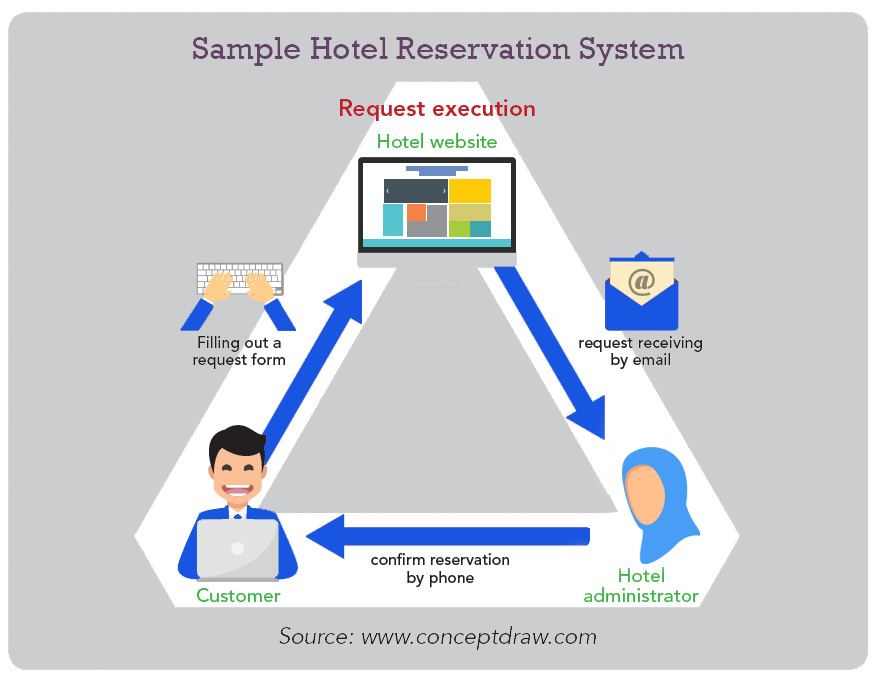
7. Physical
A physical environment such as the location of your business can be a factor that appeals to your customers. The business layout in a retail store, for an example, with ample space to maneuver your shopping cart, will allow your customers the space required and ease their shopping chores. A good restaurant ambiance with the right music in the background and cozy setting will create the comfort eatery experience. Another physical evidence is the use of the name, symbol or logo for your business branding. A good name or logo that customers can relate, attract and stays in their mind will make your company outshine the competitors. The logo, for example, can be on the business premise or building that can easily be viewed from far, on the website or on your packaging bag or boxes.
The above is correct on 14th October 2021.
